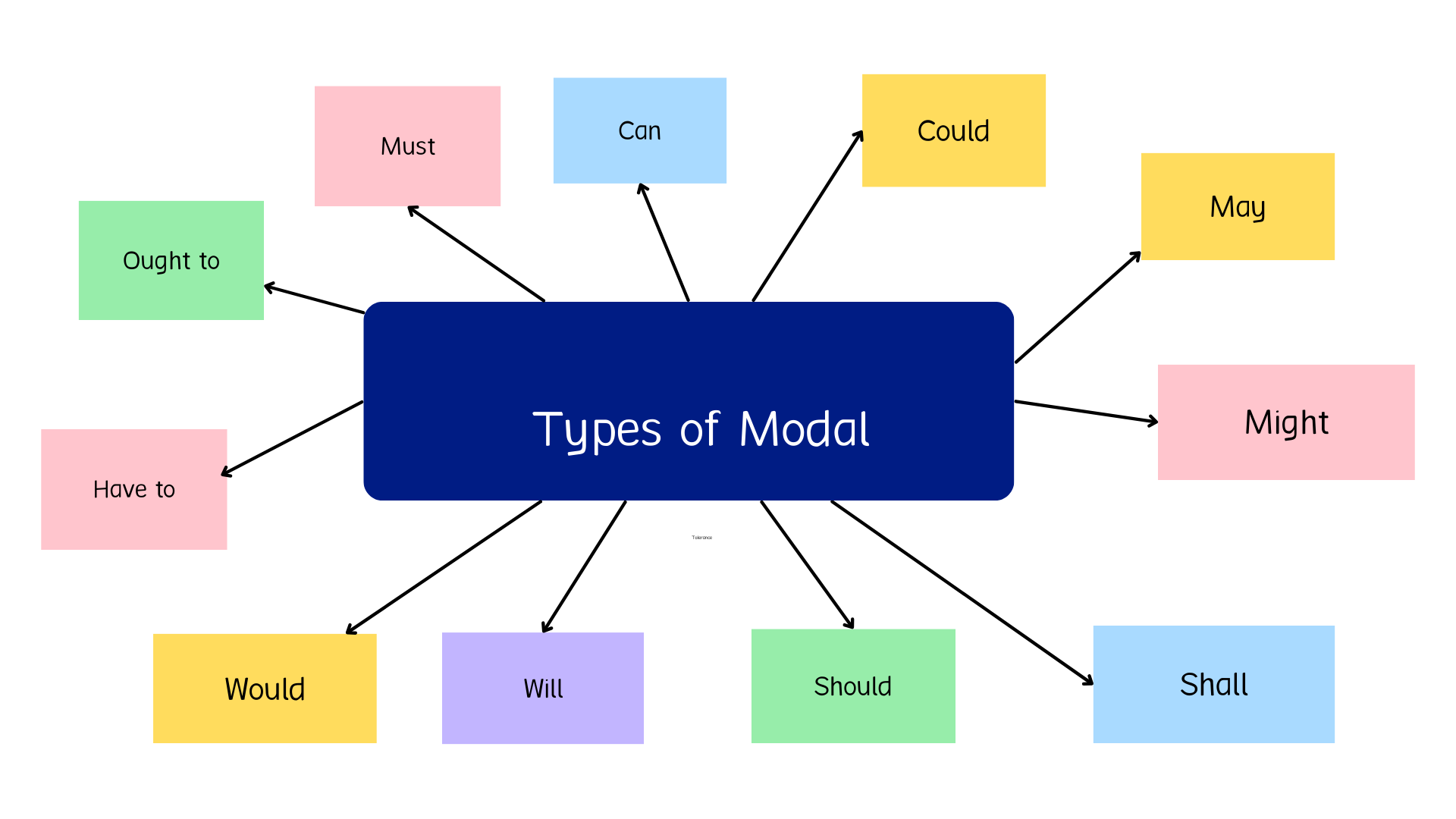How To Use Modal Verbs In English
What is modal verb with example:- sing modal verbs in English involves following certain rules and understanding their various functions. Here’s a step-by-step guide on how to use modal verbs effectively:
Step 1:
Understand the Meanings of Modal Verbs Modal verbs have specific meanings or functions. It’s essential to grasp these meanings to use them correctly:
· Can: Expresses ability or possibility.
· Example: I can swim.
· Could: Often used for past ability, polite requests, or conditional statements.
· Example: Could you help me?
· Will: Indicates future actions, willingness, or predictions.
· Example: I will meet you at 3 PM.
· Would: Used for polite requests, hypothetical situations, or expressing preferences.
· Example: Would you like some tea?
· May: Signifies permission or possibility.
· Example: May I borrow your book?
· Might: Indicates a weaker possibility or suggestion.
· Example: It might rain later.
· Shall: Can indicate future actions, offers, or suggestions, often used in formal or British English.
· Example: Shall we go?
· Should: Expresses recommendations, advice, or obligation.
· Example: You should eat your vegetables.
· Must: Indicates strong necessity, obligation, or certainty.
· Example: I must finish this report.
Step 2
Form Affirmative Sentences In affirmative sentences, modal verbs are typically followed by the base form (infinitive) of the main verb without “to.” Keep in mind that modal verbs do not change based on the subject:
She can sing.
They will arrive soon.
I must study for the exam.
Step 3
Form Negative Sentences To make negative sentences with modal verbs, add “not” after the modal verb:
She cannot sing.
They will not arrive soon.
I must not forget the meeting.
Step 4
Form Interrogative (Question) Sentences To create questions using modal verbs, either invert the subject and modal verb or place the modal verb at the beginning of the sentence:
· Can she sing?
· Will they arrive soon?
· Must I attend the meeting?
Step 5
Use Modal Verbs for Various Functions Modal verbs can be used in different contexts and functions:
· Ability: Use “can” to express what someone is able to do.
· Example: I can speak French.
· Possibility: Use “may” or “might” to indicate a possibility.
· Example: It may rain later.
· Permission: Use “may” or “can” to seek or grant permission.
· Example: May I go to the restroom?
· Example: You can use my laptop.
· Obligation: Use “must” to express a strong necessity or obligation.
· Example: I must finish this report today.
· Politeness: Use “would” for polite requests.
· Example: Would you please pass the salt?
Step 6
Consider Context The choice of modal verb depends on the context and the intended meaning of your sentence. Modal verbs can express varying degrees of certainty, obligation, and willingness.
Step 7
Practice and Review To become proficient in using modal verbs, practice constructing sentences and pay attention to how they are used in authentic English texts, conversations, and literature.
Remember that mastering What is modal verbs takes time and practice, but understanding their functions is crucial for effective communication in English.
Read more article:- Network.


